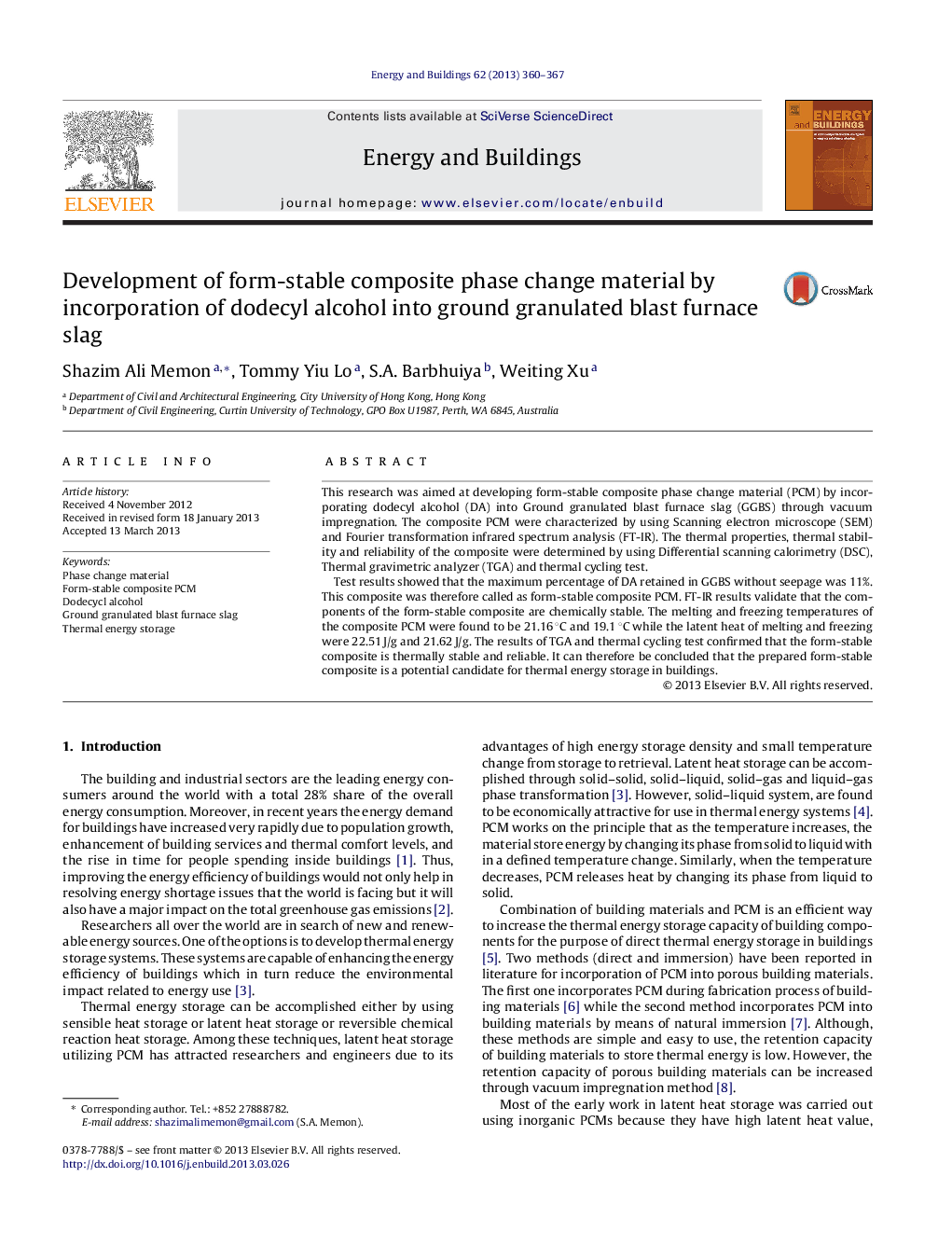| Article ID | Journal | Published Year | Pages | File Type |
|---|---|---|---|---|
| 263296 | Energy and Buildings | 2013 | 8 Pages |
•Form-stable composite PCM is prepared by using dodecyl alcohol into GGBS.•Maximum mass fraction of DA retained in GGBS without seepage was 11%.•FT-IR results indicated that the DA–GGBS composite PCM is chemically stable.•Thermal analysis revealed that composite PCM is thermally stable and reliable.•Prepared composite PCM is a potential candidate for thermal energy storage.
This research was aimed at developing form-stable composite phase change material (PCM) by incorporating dodecyl alcohol (DA) into Ground granulated blast furnace slag (GGBS) through vacuum impregnation. The composite PCM were characterized by using Scanning electron microscope (SEM) and Fourier transformation infrared spectrum analysis (FT-IR). The thermal properties, thermal stability and reliability of the composite were determined by using Differential scanning calorimetry (DSC), Thermal gravimetric analyzer (TGA) and thermal cycling test.Test results showed that the maximum percentage of DA retained in GGBS without seepage was 11%. This composite was therefore called as form-stable composite PCM. FT-IR results validate that the components of the form-stable composite are chemically stable. The melting and freezing temperatures of the composite PCM were found to be 21.16 °C and 19.1 °C while the latent heat of melting and freezing were 22.51 J/g and 21.62 J/g. The results of TGA and thermal cycling test confirmed that the form-stable composite is thermally stable and reliable. It can therefore be concluded that the prepared form-stable composite is a potential candidate for thermal energy storage in buildings.
